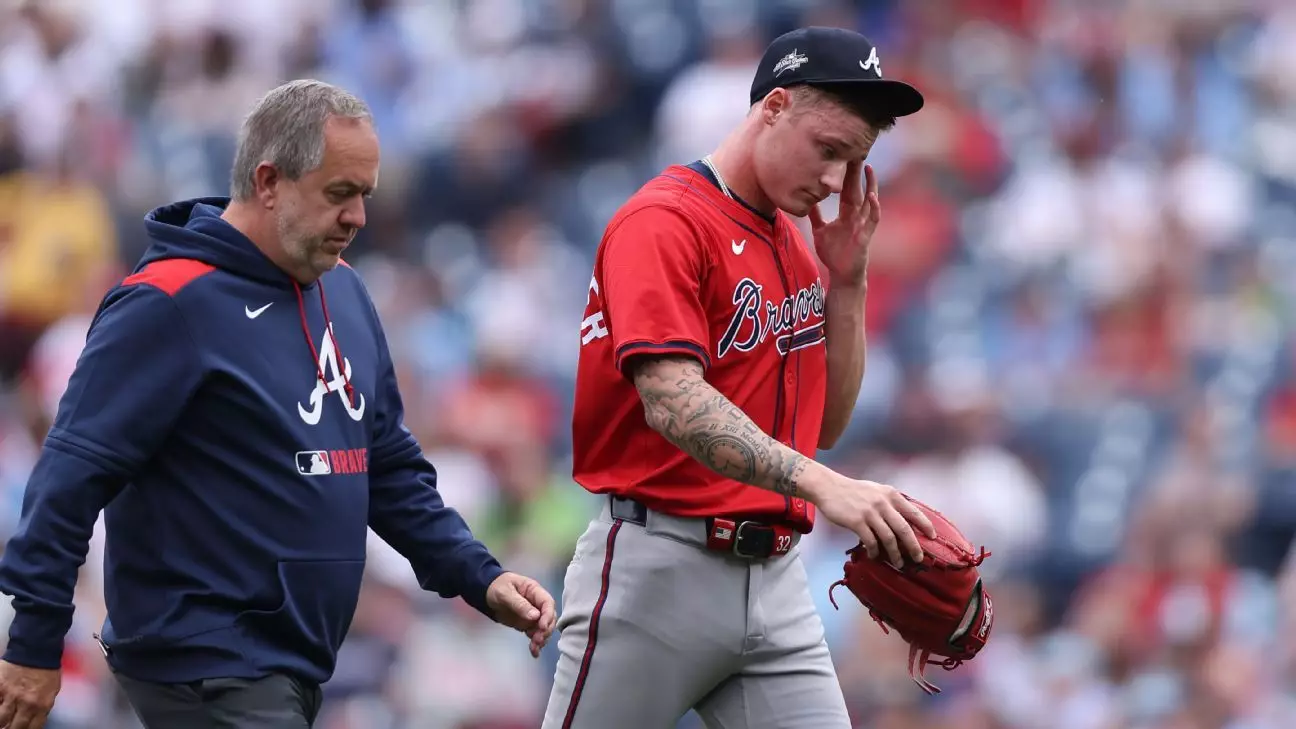In a disheartening turn of events for the Atlanta Braves, rookie pitcher AJ Smith-Shawver has undergone Tommy John surgery, a procedure that signifies both the end of his current season and a rocky start to the next. The 22-year-old right-hander, who had shown promise with a 3.86 ERA over nine starts, now embarks on a long and arduous rehabilitation journey. Under the hands of renowned surgeon Keith Meister in Arlington, Texas, the surgery was necessary to repair the ulnar collateral ligament in his right elbow—a critical injury for any pitcher. Manager Brian Snitker acknowledged the challenges ahead, but his relatively optimistic outlook reflects hope that Smith-Shawver’s talent will prevail even after a significant setback.
With Smith-Shawver sidelined, the Braves find themselves grappling not just with the loss of a young arm, but with a broader pattern of struggles that have left the team reeling—evidenced by their ongoing seven-game losing streak. In the hyper-competitive landscape of Major League Baseball, the erosion of starting pitching depth could be cataclysmic for a team with championship aspirations. Smith-Shawver’s absence not only undercuts the team’s rotation but also places immense pressure on the rest of the staff to step up in the midst of already mounting challenges.
Kimbrel’s Unceremonious Exit
Further complicating matters, veteran reliever Craig Kimbrel has chosen free agency just days after the Braves designated him for assignment. This decision comes after a brief return to the team where he enjoyed considerable success early in his career, including holding the franchise record for saves at 186. At 37, Kimbrel’s career trajectory has certainly faced many twists, particularly following a disappointing 2024 season with the Baltimore Orioles that saw him released due to underwhelming performance. Though he briefly shone during his appearance in Atlanta, pitching a scoreless inning, it was insufficient to secure his place on the roster.
Kimbrel’s return to the Braves, a nostalgic homecoming aimed at reigniting his career, has not turned out as planned, providing an added sense of urgency for the organization to recalibrate. The Braves’ decision to designate him underscores the intense pressure faced by teams in need of consistent performance—especially during a downturn in form.
The Path Forward
As the Braves navigate this challenging period, the focus shifts to resilience and adaptability. With young pitchers like Smith-Shawver needing time to recover, the Braves must unearth hidden gems within their system or explore external acquisitions to stabilize their rotation. Simultaneously, the team must rally around the absence of experienced arms and foster an environment that embraces overcoming adversity.
This is a pivotal moment not just for the individuals impacted but for the organizational ethos. Managing setbacks with strategic foresight and a keen eye on player development will be paramount. In the world of baseball, it’s not just about the immediate fallout—it’s about building a legacy capable of withstanding the tests of time and trial. As the Atlanta Braves confront their pitching predicaments, their ability to emerge stronger and more cohesive could redefine their trajectory as a franchise.


Leave a Reply